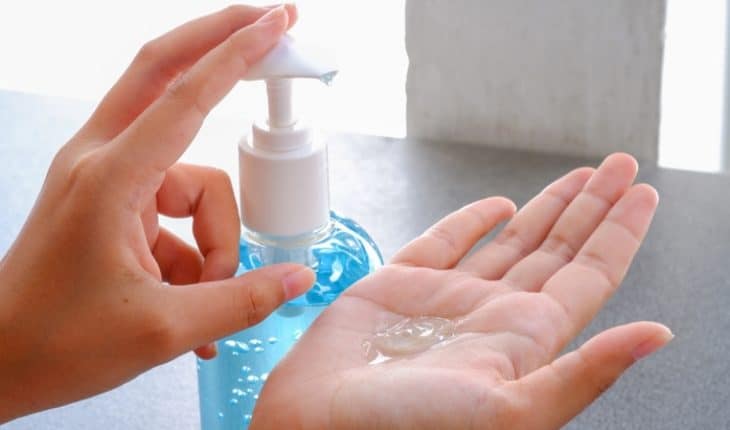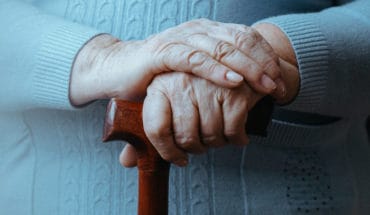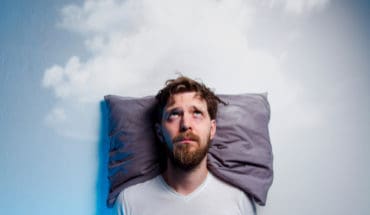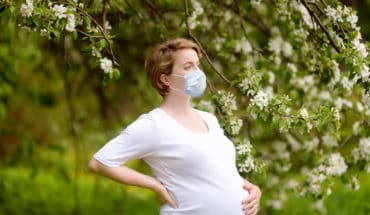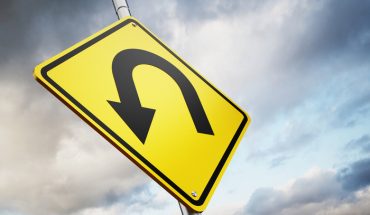First published on the Terrence Higgins Trust website, Dr Michael Brady gives information on the new virus, guidance for people living with HIV and answers to frequently asked questions.
The situation with coronavirus (COVID-19) is escalating and changing on a daily basis. It is now clear that many of us will catch it and we are all being advised to take measures not only to protect ourselves but also to ensure that we protect the most vulnerable in society.
It’s a worrying time and a cause of anxiety and concern – but there is much we can do to reduce the risk to ourselves and others. I’m writing and updating this blog post to advise those living with HIV about what to do and I hope the information and some frequently asked questions (FAQs) below will help answer any questions you might have.
COVID-19 is an illness caused by a new type of coronavirus that was initially detected in Wuhan City, Hubei Province, China. It has now spread around the world and more and more people in the UK are being infected. Public Health England is producing daily updates on COVID-19 infections in the UK.
About 80% of people with COVID-19 get a relatively mild illness. The people most at risk of serious illness and death are the elderly and those with long-term medical conditions such as lung disease, kidney disease, heart disease and diabetes.
There is currently no evidence that people living with HIV are more likely to catch COVID-19 than anyone else.
It’s estimated that perhaps as many as 1 in 3 people with COVID-19 have no symptoms – but can still pass the virus on to others. This is why ‘social distancing’ is essential. It’s really important to stay at home, avoid socialising face to face, avoid all unnecessary travel and, if you do go out, to stay at least two metres away from other people. Read detailed guidance on social distancing.
These are measures that we all need to take – but especially older people, those with some long-term medical conditions and those with weakened immune systems.
It’s particularly important for people living in London to follow this advice as London is thought to be ahead of the rest of the UK in terms of numbers of people with COVID-19 and is being described as a hotspot. For this reason you may find the response in London is slightly different from that in other parts of the country.
You’ll be aware that there are severe restrictions on travel and the government is advising we only travel if it is really necessary. There are some countries and areas where there’s a higher chance of coming into contact with someone with coronavirus. If you’re planning to travel abroad and are concerned about the coronavirus, see advice for travellers on GOV.UK.
Hygiene and hand-washing in particular remain really important. Washing your hands with warm water and soap regularly, and certainly more often than you would normally, will reduce the risk of you catching or passing on the virus.
If you have symptoms, you should stay at home and self-isolate. The main symptoms to be aware of are:
- A high temperature (you feel hot to the touch on your chest or back, or your temperature measured by thermometer is 37.8°C or higher).
- A new, continuous cough.
You need to stay at home for seven days if you have symptoms. If you live with other people, they should stay at home for 14 days from the day the first person got symptoms.
If you live with someone who is over 70, has a long-term health condition, is pregnant or has a weakened immune system, try to find somewhere else for them to stay for 14 days. If you have to stay at home together, try to keep away from each other as much as possible. For the most up-to-date information, read the government’s advice about staying at home.
You don’t need to contact 111 to tell them you’re staying at home and testing for coronavirus is not needed if you’re staying at home. After 14 days, anyone you live with who does not have symptoms can return to their normal routine.
It’s important that you do not go to a GP surgery, pharmacy or hospital if you have symptoms. Use the 111 online coronavirus service to find out what to do next.
If you feel you can’t cope with your symptoms at home, your condition gets worse, or your symptoms do not get better after seven days, then call the NHS 111 Coronavirus Service.
Only call 111 if you cannot get help online.
- In Scotland, call your GP or NHS 24 on 111 out of hours.
- In Wales, call 111 (if available in your area) or 0845 46 47.
- In Northern Ireland, call 111.
COVID-19 and HIV
It’s not the case that all people with HIV are considered at increased risk. Those on HIV treatment with a good CD4 count and an undetectable viral load are not considered to have weakened immune systems. A ‘good’ CD4 count means anything over 200. If your CD4 count is less than 200, if you’re not on treatment or if you have a detectable viral load, then it’s particularly important that you follow the guidance on social distancing.
Public Health England has now identified people who are extremely vulnerable to COVID-19. They are being advised to ‘shield’ themselves from the virus, which means staying at home at all times and avoiding face-to-face contact for at least 12 weeks (although this time may change). Although people living with HIV are not included in this list, the British HIV Association (BHIVA) is advising that those with a CD4 count less than 50 or those diagnosed with an opportunistic infection in the last six months should also follow this advice
Effective treatment means that the vast majority of people living with HIV have an undetectable viral and a good CD4 count. We usually don’t do the CD4 count test anymore because we know that, as long as you remain undetectable, your CD4 count won’t fall. As a result, it may be a number of years since you last had your CD4 count checked. Don’t worry about this: you don’t need to have a CD4 count done now. As long as your viral load remains undetectable, your CD4 count will be as good as it was when it was last tested – and probably better.
What has changed is that HIV clinics are reducing their face-to-face appointments. This is partly to lower the risk of infection but also to free up time for doctors and nurses to be redeployed into hospitals if they are needed to support the extra workload on the NHS.
Rest assured that our priority is, and will always be, your health, but be aware that we will have to do things differently over the coming months. Different clinics may take slightly different approaches, but where I work we are stopping all routine appointments and only seeing urgent or emergency cases.
If you’re well and have an undetectable viral load, we’ll do blood tests less frequently but always ensure that you have enough medication (which, at the end of the day, is the most important thing). There’s no need to stockpile medication – in fact this could put unnecessary strain on the system. We have no concerns about the supply of medication, so just ensure that you always have at least a month’s worth of medication at home. Your clinic will be in touch with you about what is happening.
Try to avoid contacting the clinic unless really necessary as things are really busy at the moment – but if you need to contact your clinic, be patient and we will sort out your problem. If you need to be seen then we will see you.
Conclusion
The situation is changing on a daily basis and we’ll update this information when we have more information to give you. I’m also providing some links in the FAQs below to other reliable sources of information.
Look after yourselves and look out for each other. Our best defence against the virus is now staying at home, stopping social contact, regular hand-washing, self-isolating if necessary, and taking care of those most vulnerable and isolated.
Increased demand for services due to COVID-19
An update from our Chief Executive on the increased demand for Terrence Higgins Trust’s services.
Frequently Asked Questions (FAQs)
What is COVID-19?
COVID-19 is a new type of coronavirus. Coronaviruses are a family of viruses that cause diseases in animals and sometimes in humans. COVID-19 causes a respiratory (lung) infection.
What are the symptoms of COVID-19?
Most people with COVID-19 have mild respiratory symptoms. The common symptoms are cough, temperature and shortness of breath.
It’s important to remember that these symptoms are similar to other illnesses that are much more common – such as the cold or flu – and don’t necessarily mean you have COVID-19.
How is COVID-19 transmitted?
Because it’s a new illness, we don’t know exactly how coronavirus spreads from person to person. Similar viruses are spread in droplets through coughing and sneezing. Viruses such as coronavirus can’t live outside the body for very long, but regular hand-washing will reduce the risk of transmission this way.
What can I do to reduce the risk of catching it?
Simple things can reduce your risk of catching COVID-19. Regular hand-washing with soap and water (for at least 20 seconds) is an effective way of stopping the spread of viruses.
Also, it’s important to:
- Cover your mouth and nose with a tissue or your sleeve (not your hands) when you cough or sneeze.
- Put any used tissues in the bin immediately.
- Avoid contact with people who have symptoms of the coronavirus.
- Stay at home and avoid face-to-face contact with people outside your household.
- Do not socialise in person with friends and family – keep in touch remotely using phone calls, video chats and social media.
- If you have to go out, stay two metres away from other people.
- Only travel on public transport if you need to.
- Use the phone, online services, or apps to contact your GP surgery or other NHS services.
Am I at greater risk if I’m HIV positive?
There’s currently no evidence that people living with HIV are any more likely to catch COVID-19 than anyone else and you should follow the advice being given to the general population.
If you are on treatment, with an undetectable viral load and a good CD4 count (i.e. over 200), then there should be no greater risk.
If you’re living with HIV and do not have an undetectable viral load or have a CD4 count below 200, it’s even more important to avoid situations where you may get infected and to follow the advice about social distancing.
We are also now advising that if you have a CD4 count below 50 or if you have been diagnosed with an opportunistic infection (or ‘AIDS-defining illness’) in the last six months, you should follow the advice about ‘shielding’ that is being given to others who are the most vulnerable to infection. This means staying at home and avoiding face-to-face contact for 12 weeks.
Can COVID-19 be treated?
COVID-19 is a new type of virus and at present there’s no specific treatment or vaccine. As COVID-19 is a virus, antibiotics will not treat it.
Most people with COVID-19 get mild flu-like and respiratory symptoms and will recover without the need for hospital care. Simple measures such as rest, food, fluids and paracetamol, if you have a fever, will be enough. Treatment aims to relieve the symptoms while your body fights the illness. You would also need to stay in isolation away from other people until you have recovered.
It is expected that most people with COVID-19 will be able to self-treat at home.
Do HIV drugs treat COVID-19?
There are research trials investigating the use of HIV medication against COVID-19 but there is currently no strong evidence that they are effective. There is also no evidence that being on HIV medication will stop you getting COVID-19.
You should continue taking your treatment at the recommended dose. Do not increase the number of tablets you take. This will not help if you get COVID-19, it will not protect you from getting it and it will only increase the risk of harmful side-effects.
Do not share your HIV medicine with anyone who has COVID-19 or who is worried about getting it.
What should I do if I think I have COVID-19?
If you think you have COVID-19 then you should stay at home and self-isolate. The symptoms you need be aware of are either:
- A high temperature (you feel hot to touch on your chest or back).
- A new, continuous cough.
If you are concerned about yourself or someone else and want to get some advice then use the 111 online coronavirus service to find out what to do next.
What should I do if I’m planning to travel abroad?
If you’re planning to travel abroad and are concerned about the coronavirus, you should check the country by country travel advice on GOV.UK.
Where can I get more information?
It’s important to get information from a reliable source such as the NHS or the government (the Department of Health). We’ll also be updating the information on our website if and when the situation changes and the advice is different.
Here are some sources of information:
General information on COVID-19 from NHS.
UK government advice about COVID-19.
Information on COVID-19 from Department of Health and Social Care.
BHIVA and THT statement on shielding extremely vulnerable populations.
All coronavirus statements from BHIVA.
You can also contact our THT Direct helpline on 0808 802 1221.
- HIV & Coronavirus COVID-19 - 24th March 2020
- Good news for people with HIV - 27th November 2016
